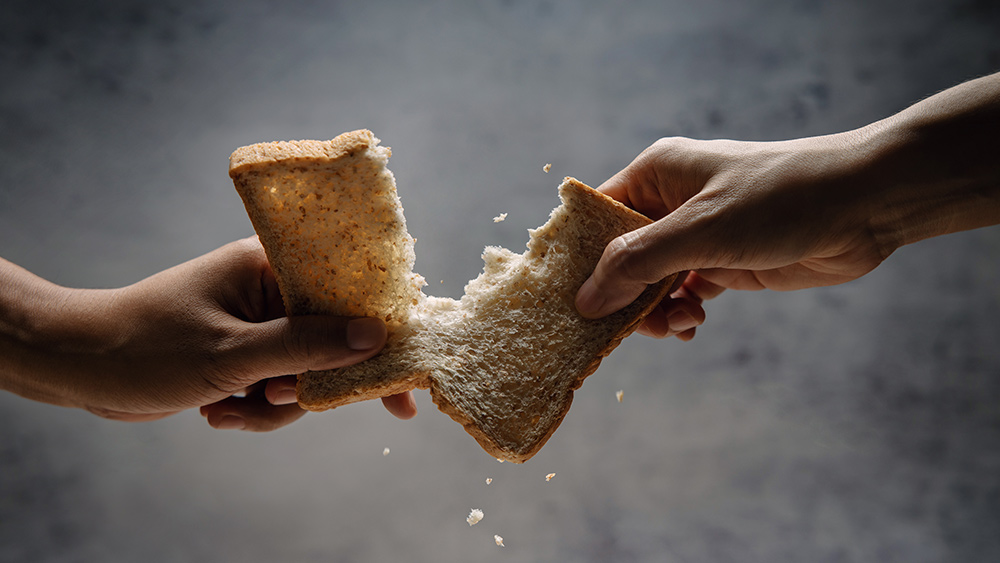 Parler
Parler Gab
Gab
Although mushrooms get good press as a low-calorie, high fiber, low-cholesterol, low-sodium decoration for your pizza, there is much more to the mushroom story than that.
(Article republished from GreenMedInfo.com)
Mushrooms have been valued for their culinary and medicinal properties for thousands of years and the Egyptians reserved them by law for the pharaoh. Hieroglyphics dating back 4,600 years depict their royal ancestry as well as their association with immortality. In ancient times, mushrooms were not cultivated but grew wild, and always carried the risk that the wrong (i.e., poisonous) variety had been gathered intentionally or unintentionally, as the Roman Emperor Claudius found when his mushroom dinner became his last meal. Ancient Asian civilizations believed that mushrooms, especially the shiitake and maitake varieties, support health generally and the immune system in particular. Today there is a wealth of scientific research attesting to the health benefits of mushrooms. Selenium-Rich Mushrooms Often lumped together with vegetables, mushrooms are actually a type of fungus with no roots or leaves or seeds. Despite their lack of the vibrant colors that we have been trained to associate with antioxidants, mushrooms are actually a good source of selenium, which is necessary for the functioning of the entire antioxidant system. Selenium is also the chemical element that the body needs to efficiently use oxygen, detoxify the body, promote heart health and maintain healthy skin. Crimini mushrooms, the brown mushrooms that are sometimes called "baby bellas," provide over 52% of the daily recommended value of selenium. They also provide almost 30% of the daily value of niacin (vitamin B3) which forms enzymes needed to convert sugars into energy. Niacin is also helpful in lowering cholesterol and preventing osteoarthritis. Mushrooms and Vitamin D Because they are grown in the dark, it is a little odd that mushrooms are a good source of vitamin D,the sunshine vitamin. In fact, mushrooms are one of the few "vegetarian" sources of vitamin D, which is otherwise available naturally in cod liver oil, fatty fish like mackerel, salmon, sardines and tuna, or eggs and liver. It is estimated that 10 mushrooms provide 10% of the daily value of vitamin D. In the future, mushrooms may become an even richer source of vitamin D since, like humans, they produce vitamin D when exposed to sunshine. Recent research suggests that exposing mushrooms to ultraviolet rays for just 5 minutes could increase their vitamin D content to 100% or more of the recommended daily value. For many of us this is a more palatable choice than cod liver oil. Other nutritional benefits of mushrooms include:- the highest levels of a potent antioxidant called L-ergothioneine that activates the immune system and acts as a free radical scavenger;
- high levels of the trace mineral copper as well as iron, both of which are needed for hemoglobin synthesis; an
- more potassium per serving than a small banana, aiding in the maintenance of proper blood pressure as well as proper functioning of nerves and muscles.
“Miracle Tree” MORINGA: An ancient natural medicine against chronic diseases
By Olivia Cook // Share
3 Easy meals-in-jars canning recipes
By HRS Editors // Share
Skip meals to live longer and lose weight
By News Editors // Share
Gwen Walz yanked off campaign trail for being a weird [REDACTED]…
By News Editors // Share
FEMA’s real purpose: Suppressing Americans and preventing civilian organization
By News Editors // Share
Mike Adams Sermon 29: The miracle of feeding 5,000 people
By Kevin Hughes // Share
Governments continue to obscure COVID-19 vaccine data amid rising concerns over excess deaths
By patricklewis // Share
Tech giant Microsoft backs EXTINCTION with its support of carbon capture programs
By ramontomeydw // Share
Germany to resume arms exports to Israel despite repeated ceasefire violations
By isabelle // Share










